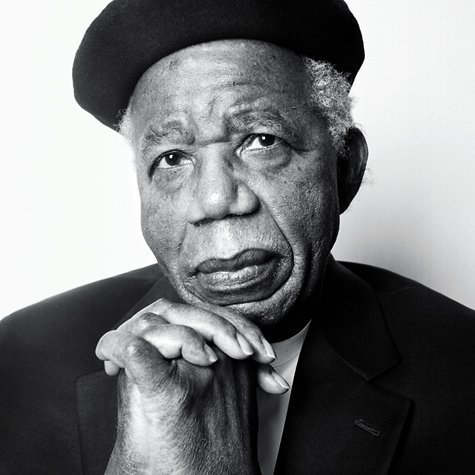Things will not Fall Apart.
 I recently read the reviews in the News Week of Chinua Achebe’s new memoir There Was a Country. (see link) even as the distinguished author turns 82 this November. The book is said to have all the elements of the famous author’s journey through his own life. Uzodinma Iweala, who wrote the Newsweek review, commented on how Achebe opines that after the war… ”the Igbo were not and continue not to be integrated into Nigeria, one of the many reasons for the country’s continued backwardness, in my estimation …” Uzo is right to say “it is near sacrilege, for any young African writer to find Achebe wanting …” … and I expect that this novel will earn all the accolades it deserves.
I recently read the reviews in the News Week of Chinua Achebe’s new memoir There Was a Country. (see link) even as the distinguished author turns 82 this November. The book is said to have all the elements of the famous author’s journey through his own life. Uzodinma Iweala, who wrote the Newsweek review, commented on how Achebe opines that after the war… ”the Igbo were not and continue not to be integrated into Nigeria, one of the many reasons for the country’s continued backwardness, in my estimation …” Uzo is right to say “it is near sacrilege, for any young African writer to find Achebe wanting …” … and I expect that this novel will earn all the accolades it deserves.
My personal memories from National Service teaching at a secondary school at Mbutu Ngwa, Imo State of Nigeria are still lucid in confirming that the Igbo people remember the war from a far different perspective than most would think. There were conversations, anecdotes, jokes, stories almost every day about what seemed initially to me like a distant tale … but the silent inner cries from the wounds of a people still mourning the over 3 million lives could sometimes be discerned by any that cared.
But then – I recall another Nigerian senior statesman justifying the Boko Haram pogrom with the argument of unfair development and resulting high poverty and social disaffection in parts of the North… and if you encounter a die-hard Awoist, one is likely to be lectured on a comprehensive position on how the country sacrificed its greatest opportunity for progress. But we also suspect that history tends to be tainted by the spectacles of the historian … even as for example we were for many years once convinced by the British educators that it was Mungo Park who discovered the River Niger.
The Bible extols the virtue of forgiveness and warns always of dangers of looking back. Indeed, it was this final gesture that destroyed Lot’s wife. Only few are strong not to fall into some delusion or the other about how things could have been if and only if this or that person did or did not do this or that. Most of our idols (like us by the way) are only made of clay and while we honor worthy men, we do well to heed the wisdom that the best are human i.e. flawed. Musing inordinately about the past will often produce a faulty hero-worship and severe distortions from a naturally selective memory.
I also suspect that the new generation of Nigerians may be less interested in tribal embers - arguably the bane of a society that seems cursed to reject progress – and want a different array of thoughts. Thoughts to explain why most citizens in the most celebrated black nation in the world today will enjoy less than 40% electricity uptime in a scenario over-endowed with natural energy resources and the best engineers.
For example Pastor Adefarasin also asks on his facebook page this week “When will our leaders take the fight against corruption seriously? In our legal system we are all equal in the the eyes of the law, however many leaders behave and are treated as if they are above the law. If a man steals a loaf of bread to feed his hungry children he will feel the full impact of the law. Theft is unjustifiable under any circumstances, but we have many who have stolen pension funds, fuel subsidy, from banks, who have inflated contracts and so much else who walk the streets freely and continue to enjoy government largesse. These things can only continue while the righteous remain silent. …”
What questions should we be asking? I suspect the solutions lie more in looking forward, learning from but seeking grace to forgive the unforgiveable past but also boldly laying out a new vision for what the future could be and positioning (irrespective of tribe) the prepared leadership that will make this happen. Sliding down the slippery staircase of tribal histories can also produce a very different and perhaps less useful set of answers.
Php 3:13 “Brethren, I count not myself to have apprehended: but this one thing I do, forgetting those things which are behind, and reaching forth unto those things which are before, 14 I press toward the mark for the prize of the high calling of God in Christ Jesus. 15 Let us therefore, as many as be perfect, be thus minded: and if in any thing ye be otherwise minded, God shall reveal even this unto you.
Lord, help me to forget those things that are behind that you want forgotten



